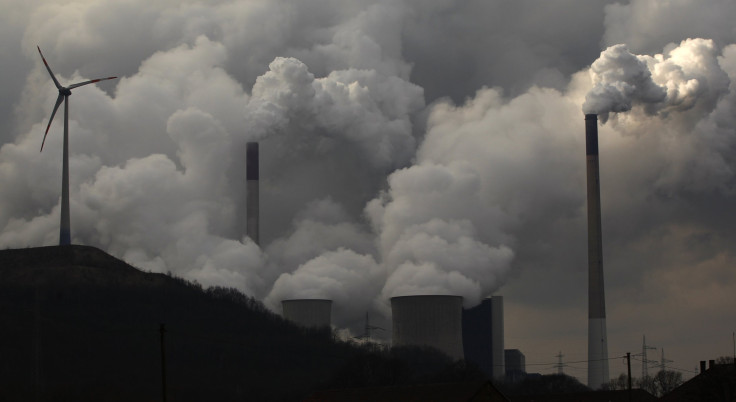Greenhouse Gas Levels In Atmosphere Touched Record High In 2013: UN Report

Propelled by the fastest rate of increase in the amount of carbon dioxide in three decades, levels of greenhouse gases in the atmosphere touched a record high in 2013, the World Meteorological Organization, or WMO, said Tuesday.
According to the latest figures, published by the United Nations agency in its Greenhouse Gas Bulletin, there was a 34 percent net increase in radiative forcing -- the rate at which the atmosphere warms up -- between 1990 and 2013. This, the report said, was largely due to the presence of long-lasting greenhouse gases such as carbon dioxide, methane and nitrous oxide.
“We are running out of time,” WMO Secretary-General Michel Jarraud said, in a statement accompanying the bulletin. “Carbon dioxide remains in the atmosphere for many hundreds of years and in the ocean for even longer. Past, present and future CO2 emissions will have a cumulative impact on both global warming and ocean acidification. The laws of physics are non-negotiable.”
The WMO report said that, between 2012 and 2013, carbon dioxide levels increased at a much faster rate than in any other year since 1984, when global records began to be maintained. The volume of carbon dioxide stood at 396 parts per million, or ppm, in 2013 -- a 2.9 ppm rise over 2012 levels. Preliminary data analyzed by WMO indicated that this was possibly a result of reduced carbon dioxide uptake by the earth’s biosphere and steadily increasing emissions.
The planet's oceans, which cushion the increase of greenhouse gases in the atmosphere by absorbing about a quarter of the total emissions, also witnessed an alarming increase in the rate of acidification, the report said.
“The current rate of ocean acidification appears unprecedented at least over the last 300 million years, based on proxy-data from paleo archives,” the report said. “Acidification will continue to accelerate at least until mid-century, based on projections from Earth system models.”
Scientists at WMO said that the reduction in carbon uptake by the biosphere was a serious cause for concern. “We don't understand if this is temporary or if it is a permanent state, and we are a bit worried about that,” Oksana Tarasova, chief of the atmospheric research division at WMO, told BBC.
"We have the knowledge and we have the tools for action to try and keep temperature increases within 2 Degrees Celsius to give our planet a chance and to give our children and grandchildren a future,” Jarraud said, in the statement. “Pleading ignorance can no longer be an excuse for not acting.”
© Copyright IBTimes 2024. All rights reserved.






















